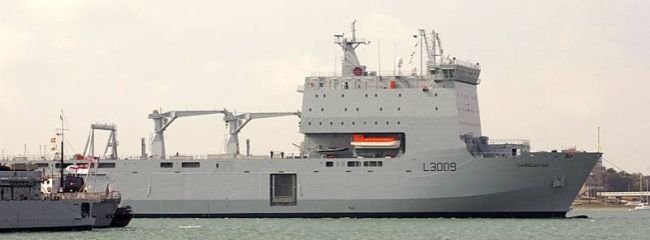KABUL, Afghanistan, Sept. 2, 2010 — There are now enough resources in Afghanistan to deliver “tangible and lasting results,” Defense Secretary Robert M. Gates said during a joint news conference with Afghan President Hamid Karzai here today.
The two leaders had met earlier in the day to discuss issues such as combating corruption in the Afghan government, civilian casualties and the U.S. military’s gradual transition of responsibility for security to Afghan forces beginning in July 2011.
Karzai told reporters his discussions with Gates “detailed the progress we have made so far and what remains to be done.”
Nearly all of the 30,000 U.S. troops President Barack Obama ordered to Afghanistan in December 2009 have arrived, Gates said. The U.S. forces are conducting operations along with 7,000 additional servicemembers sent from NATO and non-NATO allies.
The United States has tripled the number of civilians in Afghanistan and provided many more trainers for Afghan security forces.
But the additional resources for the Afghanistan campaign are not confined to international forces. “The size and capabilities of the Afghan security forces continue to grow in number and in quality,” Gates said. Afghan forces have grown by more than 60,000 in the past nine months, he said, reaching the annual recruiting goal three months early.
Afghan troops are working with the International Security Assistance Force, Gates said, with about 85 percent of the Afghan kandaks, or battalions, partnering with ISAF units. The Afghans and ISAF units are “training together, planning together and fighting together, with Afghan forces increasingly taking the lead,” the secretary said.
Meanwhile, the Taliban, the Haqqani network and their al-Qaida allies have fought back. U.S., coalition and Afghan forces had expected the fighting to intensify, Gates said, as they pushed back to take – and hold – more and more villages and cities.
While there have been more allied casualties, “our enemies are paying a very steep price and feeling more pressure than ever,” the secretary said. “That will only intensify as Afghan and coalition operations expand, bringing security to communities and people the Taliban has terrorized.”
This pressure should lead to reconciliation and reintegration in Afghanistan and there already are small groups that are putting down their arms rather than fight Afghan and coalition forces, Gates said.
Meanwhile, despite increased military operations, the numbers of civilian casualties caused by inadvertent coalition and Afghan actions are dropping, Gates said.
“We will continue to make every effort to avoid harming innocent civilians in our operations altogether,” he said. “However, at the same time the Taliban leadership has undertaken a brutal campaign against Afghan civilians and assassination of Afghan officials.”
The secretary announced that the United States is rewriting the rules for contracting and foreign assistance money to ensure it does not fuel corruption. The U.S. embassy and U.S. Forces Afghanistan are working together to put in place new procedures and controls to ensure this. “We fully support the Afghan government in its own efforts to address corruption,” Gates said.
The Afghan president told reporters his government will fight corruption, but that it must be done in accordance with Afghan law.
“We should fight corruption, but corruption must be fought legally and correctly, not in manner of banditry or a violation of the rights of the people,” Karzai said.
Gates reiterated the U.S. military’s role after July 2011 – the date that Obama set for a conditions-based beginning of transition to the Afghans for security. The coalition’s military role will change over time, but one constant will be the long-term commitment of the United States to the Afghan people, he said.
“President Karzai and I discussed the importance of the strengthened U.S.-Afghan Strategic Partnership Declaration now being developed by our two governments,” the secretary said.
Gates said the U.S. military is not “turning off the lights” in July 2011.
“If the Taliban really do believe that America is heading for the exits next summer in large numbers, they will be deeply disappointed and surprised to find us very much in the fight,” he said.
The United States will have forces in Afghanistan after 2011, the secretary said, noting that America and Afghanistan will continue to have a long-term military, political and economic partnership.
“We learned our lesson in turning our back on Afghanistan in 1989, and we have no intention of doing so again,” Gates said.
The United States, he said, will continue to disrupt, dismantle and defeat al-Qaida and its extremist affiliates in Afghanistan, Pakistan and other areas they may try to gather.
“Our success will be critical for the future of the Afghan people, for the stability of the region and for the long-term security interests of the American people and our allies,” Gates said.
Source:
U.S. Department of Defense
Office of the Assistant Secretary of Defense (Public Affairs)

 von
von 